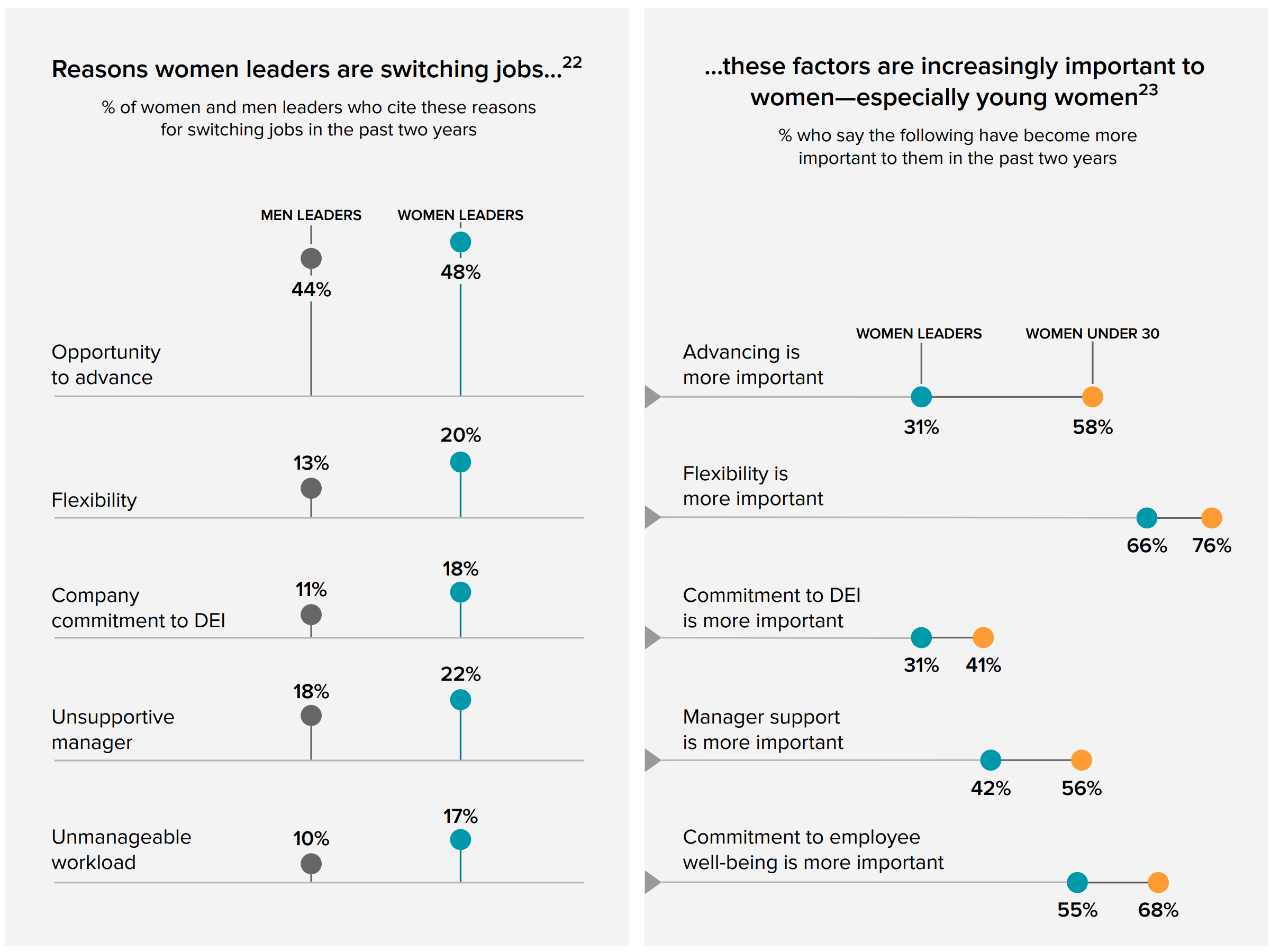Women Do It Different: How Women in Power Positions are Making the Workplace Less Toxic
People say that we learn our place in this world from the relationships in our family. I've single-handedly witnessed my sister work her way to the top. It was a traditional pipeline, just like my mom: excellent student, college internship, and endless hours of hard work led her to a senior position at her company.
My sister tells me stories of what she had to go through to get there. She's been challenged and fought with. She's been demeaned and belittled. She's been overworked and stretched thin. She's been gaslit, misinformed, and left in the dark. These experiences are not exclusive to her. Almost every woman I've ever met – friends, coworkers, public figures, strangers – experiences one of these things to a certain degree.
Nevertheless, I look up, and there she is. My own flesh-and-blood with shared experiences – immigrant parents, breaking-point childhoods – as a personal example of huge success. I look for women like her everywhere in the workplace. I crucially believe that seeing women in high places makes that reality for myself all the more tangible.
There is research that shows that women in leadership make for better business in almost every way. Women in the Workplace, the largest study on women in the corporate workforce done by McKinsey & Company, says that women spend "more time and energy in effective people management, allyship, and [diversity, equity, and inclusion]." Women leaders, compared to men at their level, "do more to support employee well-being… that dramatically improves retention and employee satisfaction." Young women especially are crucial in building diverse teams.
An inclusive and welcoming work environment and culture makes people more productive. People become curious and creative. Their ideas are nutured and come to fruition. People are braver in asking for what they need, like proper compensation, time for rest, and more flexible schedules. It's the backbone to any long-term success.
On the other hand, toxic work culture is one of the biggest reasons why women are barricaded from reaching top positions and are more likely to quit.
Source: McKinsey & Company, Women in the Workplace 2022
MIT Sloan proved this same point in their research from 2023, where they defined toxic work culture as such that "is disrespectful, noninclusive, unethical, cutthroat, or abusive." Early Silicon Valley work culture highly influenced the rise-and-grind, arguably the most defined bubble of toxic culture: You exist on three hours of sleep, work until you're weak, then you work some more, all for the prospect of enormous wealth. If you're not grinding everyday, then you're pathetic. If you're not rich, you're a loser. If you're not competitive, you might as well kiss your job goodbye.
The toxicity is romanticized. Lots of people think it is cool to work this way. MIT Sloan says that this has tangible repercussions: Toxic culture is 10 times more likely to predict attrition than compensation. It creates burnout, heightens anxiety and depression, reduces productivity and self-worth.
Women are more likely to experience and complain about toxic work culture than men are. Women are more likely to experience and talk about sexual harassment, mistreatment, and microaggressions. This gets worse when the woman is Black or brown, queer or trans, neurodivergent or disabled, or is in one or all of these categories.
We see more women represented in workplaces, but representation alone won't save us. Women need to be in positions of power to fundamentally change systems. We understand the power in changing structures when they do not serve us. We know that when we act with empathy and understanding, it benefits all people, not just women. When we uplift each other, when we truly listen, we're teaching others how to treat us.
My sister's old boss, who's made multiple "40 under 40" lists, taught my sister how to navigate the workplace as a woman of color. My sister, now a senior account director, taught me the same. I've taught women younger than me, and the new generation will soon be headstrong in paving the new way to work.


